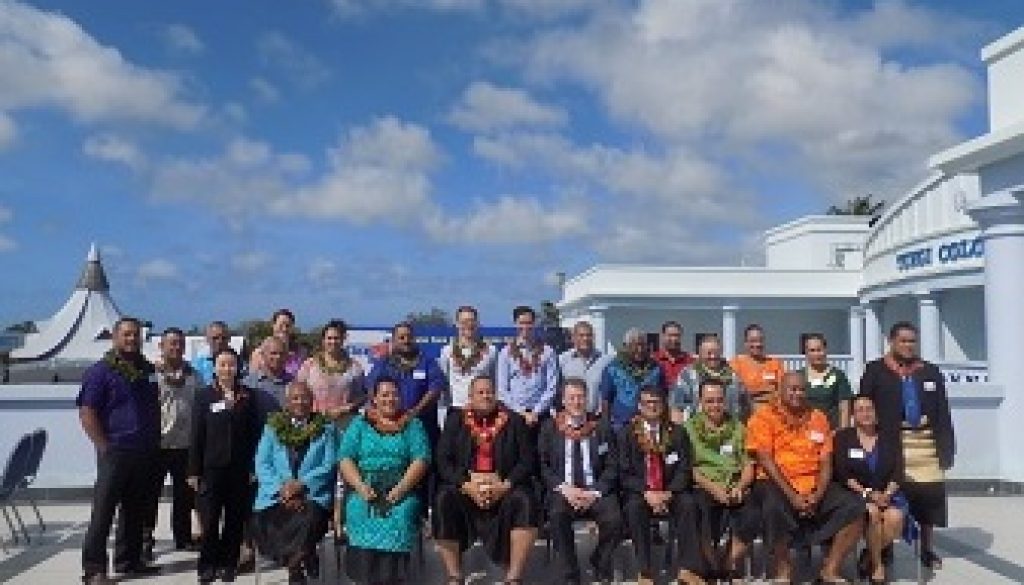Government of Tonga host First Regional Climate Technology Centre & Network (CTCN) Workshop Nuku’alofa, 24-26 February 2016
24th February 2016 Tonga’s Deputy Prime Minister and Minister responsible for Climate Change, Honourable Siaosi Sovaleni, officially opened the first regional workshop on Climate Technology today at Tungi Colonade, Nuku’alofa.
In his opening remarks, he extend the country’s condolences to the families in Fiji who have lost their loved ones in the wake of Tropical Cyclone Winston.
“Our prayers and thoughts are with them at this very difficult moment. We wish all affected people safe recovery from the great devastation they have experienced.”
He said this indicates clearly the adverse impact of climate change in the Pacific.
He added that this workshop is most timely to address technology transfer and related important issues outlined in the Paris Agreement in collaboration with CTCN to adapt and mitigate these impacts.
“The Government of Tonga together with CTCN and Pacific countries promotes the accelerated transfer of environmentally sound technologies for low carbon and climate resilient development and we are grateful that CTCN assist in funding and organizing this workshop.”
We, as Pacific countries wishes to access technology solutions, capacity building and advice on policy, legal and regulatory frameworks tailored to the needs of our individual countries.
Tonga believes that in order to strengthen national systems of climate technology innovation in the Pacific, it is vital to strengthen all the involved actors, and linkages between these stakeholders and the institutional context.
The Government together with Pacific countries are committed to address the global issue of Climate Change through enhancing climate technology innovation as we reaffirm our position in the Paris Agreement to protect our shores from the adverse impacts of climate change.
The three-day workshop will emphasize on developing and strengthening National Designated Entities (NDEs) to prepare activities at the national level that will allow Pacific countries to access technical assistance from the Climate Technology & Centre Network (CTCN).
The CTCN Regional workshop aims to facilitate discussions on
1. The outcome of the United Nations Climate Change Conference in Paris in December 2015 in relation to technology transfer and its implications in delivering on the promises made to nations most vulnerable to the effects of climate change;
2. Identifying technology needs in the region and technical support available;
3. Best practices and experience in order to formulate national action plans to access assistance from CTCN;
4. Matchmaking opportunities to secure funding for follow up actions to CTCN requests or other climate technology activities; and
5. Linkages between CTCN, donors and institutions at the international, regional and national level that are responsible for promoting climate technologies
MEIDECC initiated the regional workshop during the Paris Negotiation in December 2015 to facilitate building capacities of National Designated Entities to access assistance from the CTCN.
The CTCN at this workshop will reaffirm the roles that climate technologies can and must play in delivering on the promises made to those countries most vulnerable to the effects of climate change – and the critical role that the Technology Mechanism through NDEs will play in supporting this transition.
The CEO of MEIDECC, Mr. Paula Ma’u and the Ministry is Tonga’s CTCN National Designated Entity (NDE).
This regional workshop is made possible through collective efforts and funding from the MEIDECC on behalf of the Government of Tonga, CTCN and the Secretariat of the Pacific Regional Environment Programme (SPREP).
The Director of CTCN Mr. Jukka Uosukainen, Director of Climate Change Division at SPREP, Dr. Netatua Prescott and 40 stakeholders from Tonga and around the region are here in Nukualofa to participate in this workshop.
ENDS
Issued by the Ministry of Meteorology, Energy, Information, Disaster Management, Environment, Climate Change and Communications

